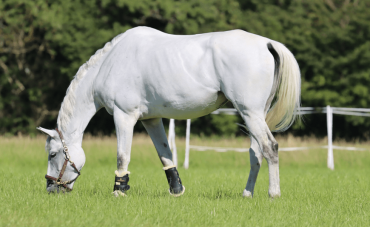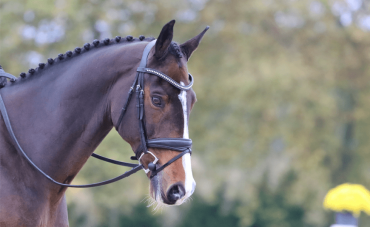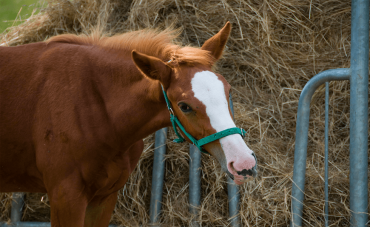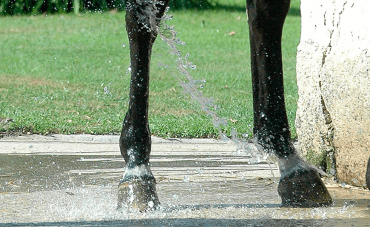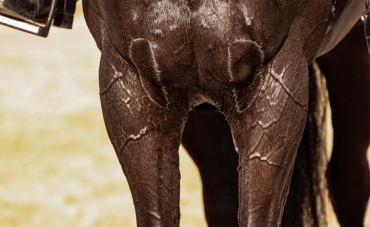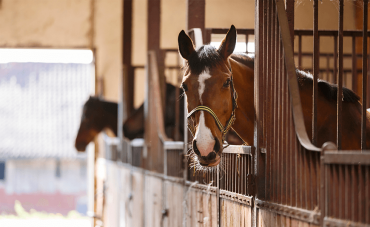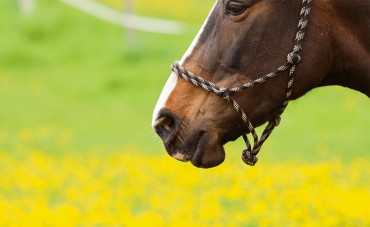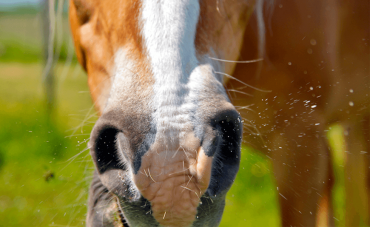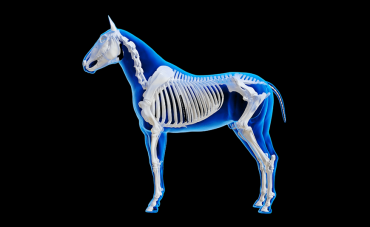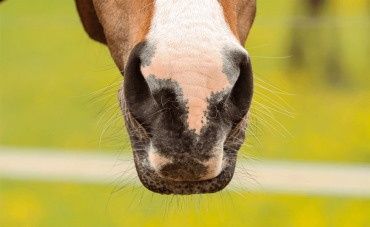Winter is the most difficult season when it comes to horse management, and even more so for senior horses. The cold, humid environment can put a great strain on them. Here are some pieces of advice to make this winter as smooth as possible.
Humidity: the number one enemy of your senior horse
The greatest threat to your senior horse is a cold, damp environment. It is therefore imperative that your senior horse has a place to take shelter. Ideally, this shelter should be strawed so that it can be insulated from the damp ground, thus keeping your horse warm. If it lies on a cold and humid ground, it will spend more energy maintaining the body temperature,which can weaken it.
For ponies or horses that are tough and have a well developed winter coat, a cover is not a must. However, if your senior horse has difficulty being in a good condition or does not have a lot of fur, the use of a waterproof blanket (without a layer) can help keep it dry. If your senior horse lives entirely in the meadow, remember to check regularly (ideally every day) that there are no small bruises from the blanket and that it still fits well. Removing the blanket regularly to inspect for possible injuries also ventilating the fur and making sure moisture does not settle under the blanket.
No feet, no horse: also works for retired horses.
It is important that your horse is seen regularly by your marshal or rider. Particular attention must be paid to your horse's hooves during the winter months. Indeed, in very wet conditions, your horse's feet can suffer. Clean them regularly, apply products to moisturise or protect the hooves if necessary. If your horse's hooves are in a bad shape, you may consider a treatment with Biotine, which will strengthen and restore the hoof’s structure.
Beyond the hooves, remember to check the legs of your horse. Mud scabies is a common occurrence among horses living in the meadow during winter. To minimise the risk, regular cleaning of the pasterns is essential in order to limit the accumulation of humidity in the horse’s environment.
Additionally, by taking care of your horse's legs you will be able to "evaluate" the condition of its joints and, in the event of stiffness, plan a course of Harpagophytum (Harpagyl). In case of doubt, your vet will be able to advise on how to support the joints of your senior horse and see if there is a necessity for medication.
Take care of your senior horse's diet
As temperature decreases, the energy requirements of your senior horse may slightly increase. Don't hesitate to give it a little extra hay if necessary. As is the case throughout the year, do not neglect the needs in minerals, micronutrients and vitamins, and provide a mineral and vitamin supplement adapted to your horse even if it is retired.
Also be careful with water, which will freeze if the temperature is below 0. Even if it is cold, your senior horse can consume a lot of water, especially if its diet is very rich in hay (therefore dry).
Do not overlook other care:
-
Vaccination: check that your horse’s vaccines are up to date, more senior horses tend to have weaker immune systems
-
Deworming: The wormers should be checked and adapted to the living environment of your horse. Ideally, they should be administered before winter starts.
-
Breathing: for some horses, a hay-heavy diet may result in breathing problems. It is not uncommon to see horses spend the whole day eating hay, sometimes with their heads in the rack. If your senior horse has respiratory problems you could moisten the hay to reduce the amount of dust produced by it, preventing inhalation by your horse. There are also feed supplements such as Balsamic Control which will help your horse cope better during these periods.
-
Stiffness and osteoarthritis: we have talked about joint discomfort and stiffness among senior. Osteoarthritis remains the most common pathology among senior horses. Stiff joints can present problems which, at first glance, might not be directly related to them. When a horse has discomfort in moving, naturally, it tends to move less, meaning that it will result in less movement to eat, drink or take shelter from rain. To prevent this, feed supplements, such as Harpagyl can be used. As always, your vet will be the best advisor you can get when it comes to evaluating your horse’s needs, be it still active, almost retired or senior.
This should cover our little overview of things to consider when taking care of your senior horse during winter. If you have any questions, do not hesitate to contact us over our social media channels.

